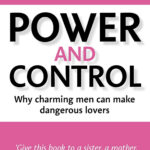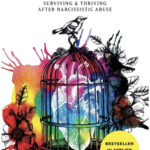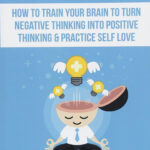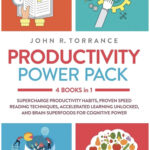Abusive power and control (also controlling behavior and coercive control) is commonly used by an abusive person to gain and maintain power and control over another person in order to subject that victim to psychological, physical, sexual, or financial abuse. The motivations of the abuser are varied and can include devaluation, envy, personal gain, personal gratification, psychological projection or just for the sake of the enjoyment of exercising power and control.
Controlling abusers use tactics to exert power and control over their victims. The tactics themselves are psychologically and sometimes physically abusive. Control may be exerted through economic abuse, limiting the victim, as they may not have the means to resist or leave the abuse. The goal of the abuser is to control, intimidate and
Manipulators and abusers often control their victims with a range of tactics, including, but not limited to, positive reinforcement (such as praise, superficial charm, flattery, ingratiation, love bombing, smiling , gifts, attention), negative reinforcement (taking items away, influencing them to do something against their will), intermittent or partial reinforcement, psychological punishment (such as nagging, silent treatment, swearing, threats, intimidation, emotional blackmail, guilt trips, inattention)and traumatic tactics (such as verbal abuse or explosive anger).
The vulnerabilities of the victim are exploited with those who are particularly vulnerable being most often selected as targets. Traumatic Bonding (also popularly known as Stockholm syndrome) can occur between the abuser and victim as the result of ongoing cycles of abuse in which the intermittent reinforcement of reward and punishment creates powerful emotional bonds that are resistant to change and a climate of fear. An attempt may be made to normalise, legitimise, rationalise, deny, or minimise the abusive behaviour, or blame the victim for it.
Isolation, gaslighting, mind games, lying, disinformation, propaganda, destabilisation, brainwashing, and divide and rule are other strategies that are often used. The victim may be plied with alcohol or drugs or deprived of sleep to help disorientate them.
Based on statistical evidence, certain personality disorders correlate with abusive tendencies of individuals with those specific personality disorders when also compiled with abusive childhoods themselves.
The seriousness of coercive control in modern Western societies has been increasingly realised with changes to the law in several countries so it is a definable criminal offence. In conjunction with this there have been increased attempts by the legal establishment to understand the characteristics and effects of coercive control in legal terminology. For example, on January 1, 2019, Ireland enacted the Domestic Violence Act 2018, which allowed for the practice of coercive control to be identifiable based upon its effects on the victim. And on this basis defining it as: ‘any evidence of deterioration in the physical, psychological, or emotional welfare of the applicant or a dependent person which is caused directly by fear of the behaviour of the respondent’. On a similar basis of attempting to understand and stop the widespread practice of coercive control, in 2019, the UK government made teaching about what coercive control was a mandatory part of the education syllabus on relationships. While coercive control is often considered in the context of an existing intimate relationship, when it is used to elicit a sexual encounter it is legally considered as being a constituent part of sexual abuse or rape. When it is used to begin and maintain a longer term intimate relationship it is considered to be a constituent element of sexual slavery.





